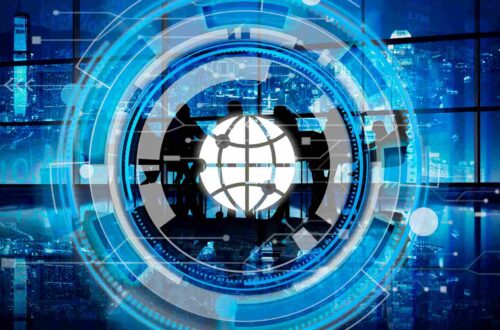In an era where sustainability and environmental awareness have become global imperatives, innovative technologies like Bollegraaf AI, Greyparrot, and Airivero are stepping up to tackle one of humanity’s most pressing issues: waste management. These groundbreaking solutions—bollegraaf ai greyparrot airivero washingtonpost—are revolutionizing the recycling industry by integrating artificial intelligence (AI) into waste sorting and recycling processes. They enhance efficiency and pave the way for a greener future. Recent reports from the Washington Post highlight how these advancements reshape recycling centers worldwide.
The collaboration of these technologies—bollegraaf ai greyparrot airivero washingtonpost—demonstrates the power of innovation in waste management, as detailed in this article.
The Challenge of Modern Waste Management
Waste management has long been a complex challenge. With global populations steadily rising and urbanization accelerating, the amount of waste generated each year is staggering. The World Bank estimates global annual waste will reach 3.4 billion tons by 2050, up from 2.01 billion tons in 2016. This underscores the urgent need for innovative recycling solutions.
Traditionally, recycling has relied heavily on manual labor, which is time-intensive and prone to errors. Accurate sorting is critical for producing high-quality recyclables, yet contamination rates remain high. Technologies like Bollegraaf AI, Greyparrot, and Airivero transform waste sorting and management.
Bollegraaf AI: Automation at Its Best
Bollegraaf Recycling Solutions has embraced AI to redefine waste sorting systems. Their AI-driven solutions optimize recycling processes by automating material recognition and sorting. Bollegraaf AI uses machine learning to identify various waste types, like plastics, metals, and paper, with exceptional accuracy.
A standout feature of Bollegraaf AI is its ability to process large waste volumes in real-time. Advanced sensors and cameras help differentiate recyclable from non-recyclable materials, reducing contamination and improving efficiency. This scalable technology suits small facilities and large operations, offering cost savings and environmental benefits.
Greyparrot: Pioneering AI for Waste Recognition
Greyparrot, a UK-based AI company, specializes in computer vision technology to analyze and categorize waste with extraordinary precision. Their software integrates seamlessly with existing recycling infrastructure, enhancing sorting without system overhauls. Greyparrot’s AI focuses on real-time waste recognition, using advanced image recognition to classify materials.
For example, the system distinguishes between plastics such as PET, HDPE, and LDPE, which is crucial for achieving high recycling rates. Additionally, it provides valuable data insights that not only enable operators to monitor waste streams more effectively but also improve operational efficiency. Furthermore, these insights help identify trends, thereby leading to more informed and better decisions. As a result, organizations can implement more effective strategies to enhance overall recycling performance. Consequently, this approach not only drives higher efficiency but also fosters greater sustainability in the long term. Moreover, by relying on such innovative systems, businesses can ensure consistent progress toward meeting their environmental goals.
What sets Greyparrot apart is its transparency and data sharing. By offering detailed analytics on waste composition, they empower stakeholders to make informed recycling improvements. The Washington Post highlights Greyparrot’s adoption by major recycling facilities, showing measurable efficiency and material recovery improvements.
Airivero: A Holistic Approach to Sustainability
Airivero combines AI with IoT (Internet of Things) to create a holistic waste management ecosystem. Their platform connects smart sensors, data analytics, and AI algorithms for waste monitoring, collection, and recycling.
One key innovation is Airivero’s smart bin technology. Sensors detect fill levels and optimize waste collection routes, reducing operational costs and transportation carbon footprints. Their AI-driven analytics platform also provides real-time insights into waste generation patterns, which, in turn, enables municipalities and businesses to implement more targeted recycling strategies. Moreover, by leveraging these insights, they are able to optimize their efforts and, consequently, achieve greater recycling efficiency. As a result, this approach not only helps reduce waste but also significantly improves overall sustainability. Additionally, these improvements contribute to long-term environmental and economic benefits. Furthermore, this comprehensive strategy ensures that both short-term and long-term goals are met, ultimately creating a more sustainable future.
Airivero emphasizes sustainability beyond technology. They collaborate with communities, governments, and environmental organizations to promote recycling awareness and education. The Washington Post features Airivero’s initiatives as effective in fostering sustainability in global cities.
Washington Post’s Perspective on Bollegraaf AI, Greyparrot, and Airivero
The Washington Post raises awareness about innovative recycling technologies. Through in-depth reporting, it sheds light on challenges and opportunities in waste management. Coverage of Bollegraaf AI, Greyparrot, and Airivero amplifies the sustainability conversation.
One article explored AI’s transformative role in recycling, emphasizing the need for these technologies to combat the waste crisis. It highlighted economic and environmental benefits, citing global case studies. This coverage informs readers and inspires action among policymakers, businesses, and individuals.
The Washington Post’s examination of bollegraaf ai greyparrot airivero washingtonpost initiatives emphasizes their collective impact on global recycling efforts.
Bollegraaf AI, Greyparrot, Airivero, and Washington Post: A Unified Vision for Recycling Innovation
AI integration into recycling offers numerous benefits:
- Increased Efficiency: AI systems process waste much faster than manual sorting, which, in turn, reduces costs and significantly improves throughput. Moreover, this enhanced speed allows for greater scalability, thereby ensuring that operations can handle larger volumes of waste more effectively. Consequently, businesses can achieve both cost savings and increased productivity. Furthermore, by adopting AI-driven solutions, companies can streamline their processes, ultimately boosting overall efficiency and long-term sustainability.
- Enhanced Accuracy: Advanced algorithms ensure precise material recognition, producing high-quality recyclables with lower contamination.
- Data-Driven Insights: AI technologies offer valuable waste stream data, enabling strategic decisions.
- Environmental Impact: Improved recycling rates and reduced landfill use lower greenhouse gas emissions.
- Scalability: These technologies adapt to facilities of all sizes, making them widely accessible.
Challenges and the Road Ahead
Despite advancements, however, significant challenges still remain. Indeed, while progress has been made, these obstacles continue to hinder full-scale implementation. Consequently, additional efforts will be necessary to overcome them. Furthermore, addressing these challenges promptly will not only ensure lasting success but also help accelerate future progress. Moreover, with sustained effort, these obstacles can eventually be turned into opportunities for further innovation. Ultimately, such a proactive approach will drive more robust and effective solutions in the long run. Initial investment for AI systems can be a barrier for smaller facilities. Effective collaboration among stakeholders is essential for success.
Additionally, standardized recycling practices are urgently needed, especially because regional variations in waste management and policies can significantly affect AI systems. Furthermore, without uniformity, the effectiveness of AI systems in managing recycling may be compromised, thereby ultimately leading to inefficiencies across different regions. Consequently, increased investment in R&D and, similarly, enhanced global cooperation are both crucial for overcoming these obstacles. Moreover, in the long term, such coordinated efforts will not only address current challenges but also pave the way for a more sustainable and efficient recycling ecosystem. As a result, these actions will ensure a more cohesive global approach to waste management.In the long term, such efforts will foster greater consistency and drive sustainable advancements in recycling practices worldwide.
Conclusion: Bollegraaf AI, Greyparrot, Airivero, and the Future of Recycling
AI integration into recycling marks a significant leap toward sustainability. Companies like Bollegraaf AI, Greyparrot, and Airivero lead this revolution, offering solutions that enhance efficiency, accuracy, and environmental impact. As the Washington Post highlights, these technologies can transform recycling and pave the way for a greener future.
Adopting AI-driven recycling systems helps address the growing waste crisis and supports a circular economy. Achieving this vision requires collective effort and innovation. The fusion of technology and sustainability holds the key to solving pressing environmental challenges.





